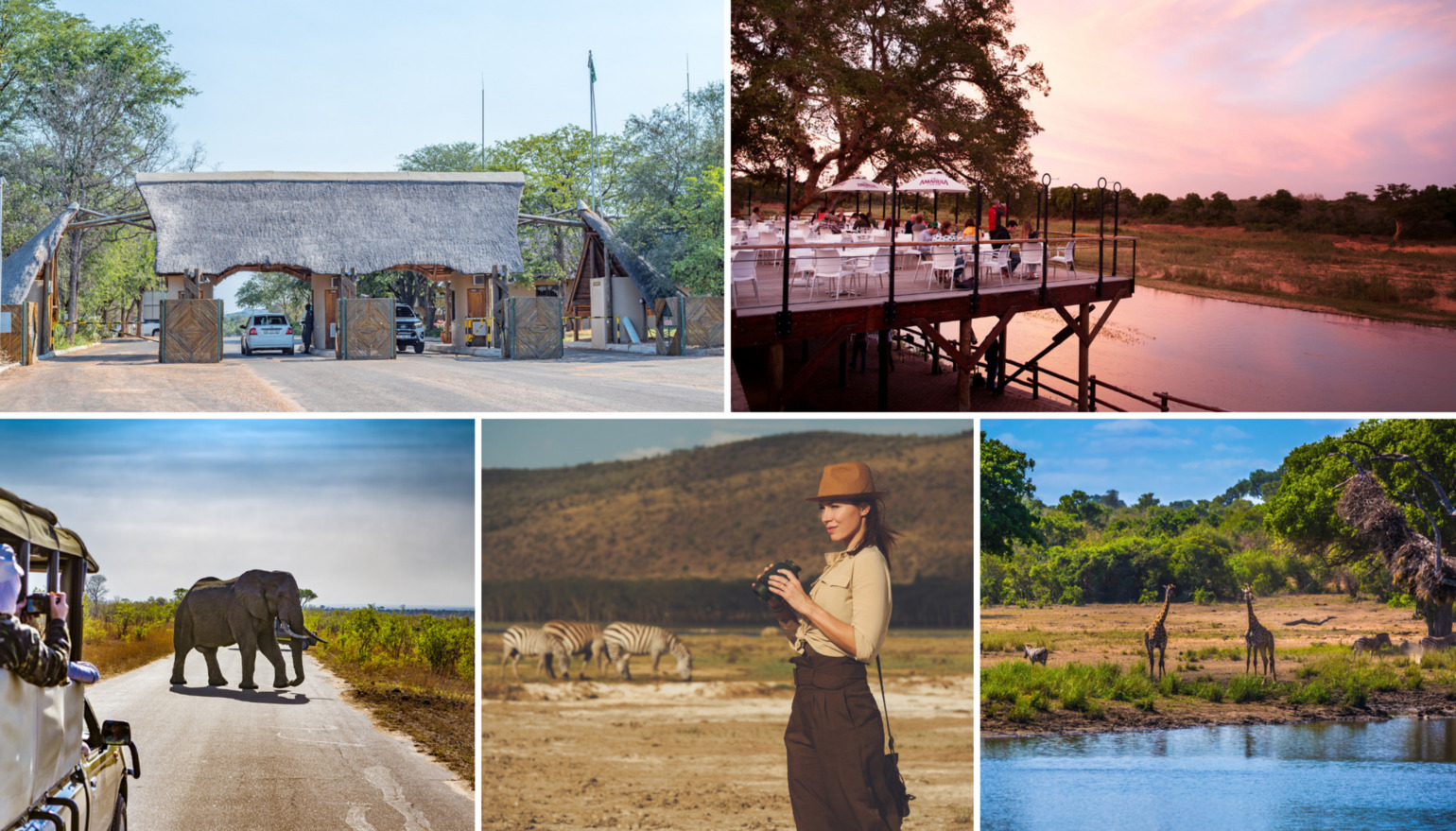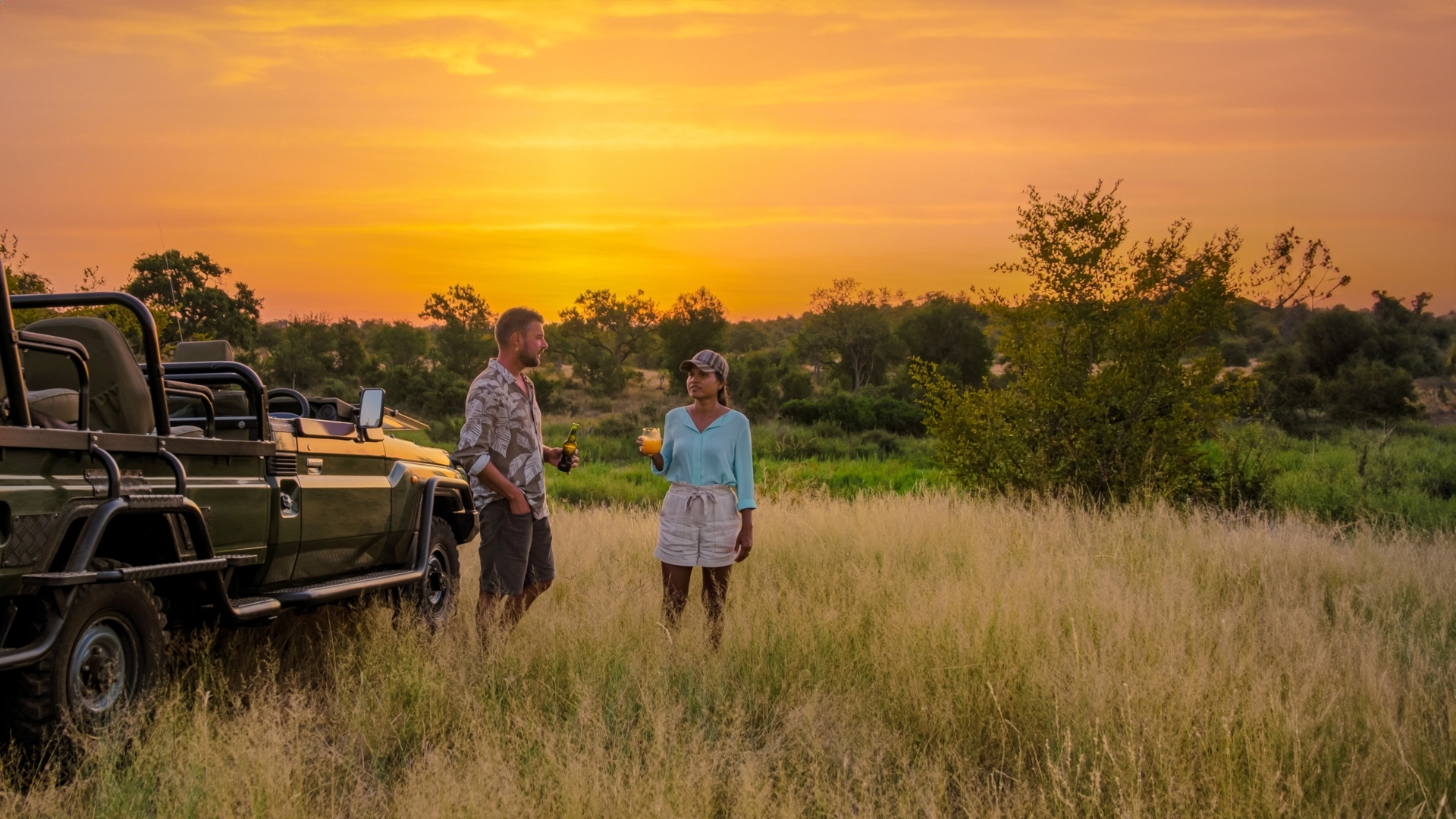Explore the kruger
All you need to know
Few places on earth capture the raw beauty and wonder of the wild quite like the Kruger National Park. As South Africa’s flagship game reserve, it stretches across nearly 20,000 square kilometers, making it one of the largest wildlife sanctuaries in the world. From the iconic Big Five to golden savannahs and winding rivers, Kruger offers an experience that’s both humbling and unforgettable. Whether it’s your first visit or your tenth, this guide will help you make the most of your adventure.
Why Visit Kruger National Park?
- Biodiversity hotspot: Home to over 500 bird species, 147 mammal species, and countless reptiles, trees, and plants.
- The Big Five: Lion, leopard, elephant, buffalo, and rhino sightings await.
- Accessibility: Well-maintained roads, rest camps, and guided tours make it beginner-friendly yet exciting for seasoned safari-goers.
- Year-round experience: Every season offers unique wildlife encounters and landscapes.
Kruger National Park Entry Fees 2025
- For South African citizens and residents, adults (12 years and older) pay R128, while children (2–11 years) pay R64.
- For SADC nationals, adults pay R257 and children pay R128.
- For international (non-South African) citizens, adults pay R535, and children pay R267.
Best Time to Visit the Kruger National Park
- Dry Season (May – September): Ideal for game viewing. Animals gather around waterholes, and vegetation is thinner, making sightings easier.
- Wet Season (October – April): The bush turns lush and green, birdlife flourishes, and newborn animals abound. Perfect for photography and birdwatching.
How to get to the Kruger National Park
- By Car: Kruger is easily accessible from Johannesburg (about a 4–5 hour drive to southern gates).
- By Air: Fly into Skukuza, Hoedspruit, or Nelspruit (Kruger Mpumalanga International Airport).
Best Rest Camps in Kruger
- Skukuza Camp: The largest, with plenty of facilities and activities.
- Satara Camp: Known for predator sightings, especially lions.
- Lower Sabie Camp: Stunning views over the Sabie River.
- Olifants Camp: Perched on a cliff, with breathtaking vistas of the Olifants River.
Top things to do in the Kruger National Park
- Self-Drive Safari: Set your own pace while exploring.
- Guided Game Drives: Knowledgeable rangers enhance your experience with tracking skills and stories.
- Walking Safaris: For a thrilling up-close experience with nature.
- Photography: Capture unforgettable landscapes and wildlife moments.
- Bush Braais & Picnics: Certain camps and spots allow you to enjoy a truly African outdoor meal.
What to Pack
- Neutral-coloured clothing (avoid bright colours).
- Binoculars and a good camera.
- Sunscreen, hat, and sunglasses.
- Insect repellent (especially in summer).
- Refillable water bottles and snacks.
- A field guidebook or app to identify animals and birds.
Where to Stay: The Perfect Base for Your Kruger Adventure
Exploring the Kruger National Park is an unforgettable experience, but it’s just as important to have the right base to come home to after a day of adventure. That’s where Ngwenya Lodge comes in.
Situated right on the banks of the Crocodile River and only a stone’s throw from the Crocodile Bridge Gate, Ngwenya gives you the best of both worlds: effortless access to the park and the chance to spot wildlife without even leaving the lodge. Imagine sipping your morning coffee while elephants, hippos, or buffalo wander along the riverbank in front of you, it doesn’t get more “Kruger” than that.
Whether you’re planning sunrise game drives, lazy afternoons by the pool, or evenings around the braai, Ngwenya Lodge offers the perfect balance of adventure and relaxation.
For those looking to explore more of the area, Crystal Springs Mountain Lodge (75,3km) and Sudwala Lodge (100km) are also just a short drive away, offering additional options for comfort and unforgettable experiences near the park.
The Kruger National Park isn’t just a destination, it’s a journey into the heart of Africa’s wild soul. Whether you’re watching elephants cross a river at sunset, hearing a lion’s roar in the distance, or stargazing in the stillness of the bush, every moment here becomes a cherished memory.
So pack your bags, grab your binoculars, and get ready, Kruger is calling.

